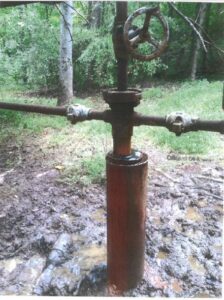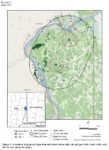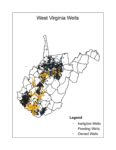|
|||||||||||
|
The federal Bipartisan Infrastructure Investment and Jobs Act of 2021 has already made three payouts in the form of grants to States to plug “orphaned” wells. Now, the federal Inflation Reduction Act of 2022 is providing a fourth round of money to plug low or non-producing wells that belong to drillers that are still in business in order to prevent those wells from becoming orphaned. This federal money is not nearly enough money to plug all of the low or non-producing wells of drillers, so which wells should the money go to plug? The IRA funding is part of the Methane Emission Reduction Program and can be used to reduce methane and greenhouse gas emissions, mitigate air pollution from legacy oil and gas systems, and other similar purposes. WVSORO and other stake holders are on an advisory council. However, the State is required to hold meetings and take comments on which of the drillers’ wells should be priorities for plugging. The public — that’s YOU — is invited to attend the meetings and make comments on what you think the priorities should be. The public meetings are:
Our initial thoughts are that for wells that have a “responsible operator” that is still in business this money should only be used to plug idle wells, and not “marginal,” wells still producing. Why? Because idle wells are most likely to need plugged soonest, and wells producing some gas or oil should be paying some royalties to some mineral owner. Idle wells with leaks in casings (not just leaks in above-ground pipes etc. that can be easily fixed) should have the highest priority, starting with those near public buildings and then residences. If there are some wells that are prohibiting development, or whose wellheads, facilities and roads take up a lot of farmland, they should maybe be next. Preference should be given to wells belonging to the drillers with the least total production since they are least likely to be able to afford to plug wells, followed by the wells of those drillers that have more production, but only if they have already plugged wells on their own. However, this federal money should not be used to plug wells that are already covered by consent agreements that a driller has with the State. Those are only our initial thoughts. We and the State would like to hear from you. So please attend one of the meetings mentioned above, or you can submit written comments by sending an email to DEP-MERP@wv.gov by November 14, 2024. Or you can respond to us and Dave will take them to the advisory committee meeting. Want to know more? About the Inflation Reduction Act Well Plugging Money Your Vote is Your Voice! Whether you vote early or on Election Day, be sure you have a plan to make your voice heard this critical election season. Methane leaks are just plain wasteful, deprive royalty owners of income, and the State of needed tax revenue, in addition to contributing to climate change. Clean air and water, a healthy economy, and addressing the climate crisis are non-partisan issues. By participating in elections, you can help ensure that West Virginia prioritizes clean water, sustainable jobs, and investments in climate solutions, like reducing methane emissions. Whether you’re a first-time voter or a seasoned pro, our friends at TogetherWV have the resources you need to ensure your vote counts in 2024 here: https://www.togetherwv.org/makeaplan Not a WV resident? Visit https://www.vote.org/ for information and resources specific to your state. |
|||||||||||
WV Surface Owners' Rights Organization © 2016
Frontier Theme











